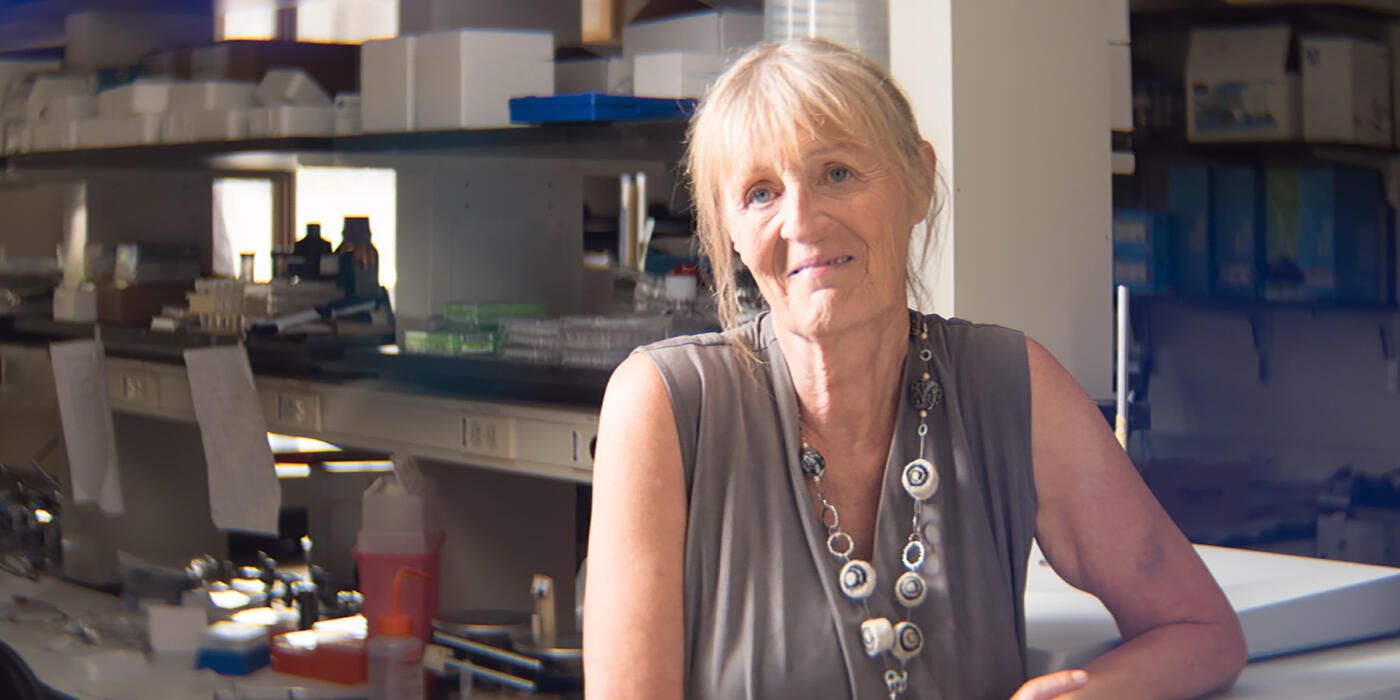Wistar Scientists Enhance Cell-Based Therapy to Destroy Solid Tumors
PHILADELPHIA—(Dec. 13, 2023)—Wistar researchers successfully tested a simple intervention that could unlock greater anti-tumor power in therapies that use T cells — an approach known as “cell-based therapy,” which uses specially designed T cells to fight cancer. Led by Dr. Hildegund C.J. Ertl — a professor in The Wistar Institute’s Vaccine & Immunotherapy Center — the team has proven an exciting concept: that the common cholesterol drug fenofibrate can boost T cells’ ability to destroy human tumors, as described in their new paper, “Treatment with the PPARα agonist fenofibrate improves the efficacy of CD8+ T cell therapy for melanoma,” published in Molecular Therapy Oncolytics.
CD8+ T cells work very well in fighting liquid tumors, but for solid tumors like melanoma, the cell-based therapy approach can stall due to the physical structure of the cancer. The T cells infiltrate the tumor, but the cancer adapts and saps the T cells’ energy by hijacking the form of metabolism that the T cells use: glycolysis, which turns sugar into energy. Without energy, the T cells first lose functions and then die, and the cancer continues to grow.
But Dr. Ertl’s team has been able to circumvent this problem by forcing T cells to use a different energy source than glucose. They used fenofibrate because, as a cholesterol-lowering compound, the drug is a PPARα agonist. When PPARα is upregulated, cellular metabolism is switched from glycolysis to fatty acid oxidation, or FAO. This mechanism works to improve cholesterol levels in human patients, but for Dr. Ertl’s purposes, the fenofibrate-induced switch to FAO provided T cells with a form of energy that cancer couldn’t exploit — which is how Dr. Ertl proved that fenofibrate has been able to boost the killing power of T cells deployed against cancerous cell lines.
In this paper, the authors wanted to see whether this kind of cancer-killing improvement would have similar effects when deployed against not just cancer cell lines but solid human tumor fragments — a more challenging proposition. The group treated T cells with fenofibrate, and the hypothesis held: Dr. Ertl’s team watched the T cells treated with fenofibrate survive longer and kill more cancer in preclinical models with human solid tumor masses than the T cells that didn’t receive the treatment.
“Treating T cells with fenofibrate before using them as a cancer treatment flips a switch of sorts in their metabolism,” said Dr. Hildegund Ertl. “Once that switch is flipped, T cells can destroy the cancer much more effectively. And we’ve confirmed that this holds for larger human tumor masses.”
As a result of these findings, Dr. Ertl and her team think this intervention shows great promise for future anti-tumor therapies. “Melanoma is the most dangerous form of skin cancer. Anything we can do to chip away at the cancer and destroy more of it — even a simple pre-treatment step like this one — can make a world of difference.”
Co-authors: Mohadeseh Hasanpourghadi, Arezki Chekaoui, Sophia Kurian, Robert Amrose, Wynetta Giles-Davis, Amara Saha, and Hildegund C.J. Ertl of The Wistar Institute; Raj Kurupati of The Wistar Institute and The Janssen Pharmaceutical Companies of Johnson & Johnson; and Xu Xiaowei of the Hospital of the University of Pennsylvania
Work supported by: Department of Defense grant number W81XWH-19-1-0485 CA180191.
Publication information: “Treatment with the PPARα agonist fenofibrate improves the efficacy of CD8+ T cell therapy for melanoma,” published in Molecular Therapy Oncolytics.




